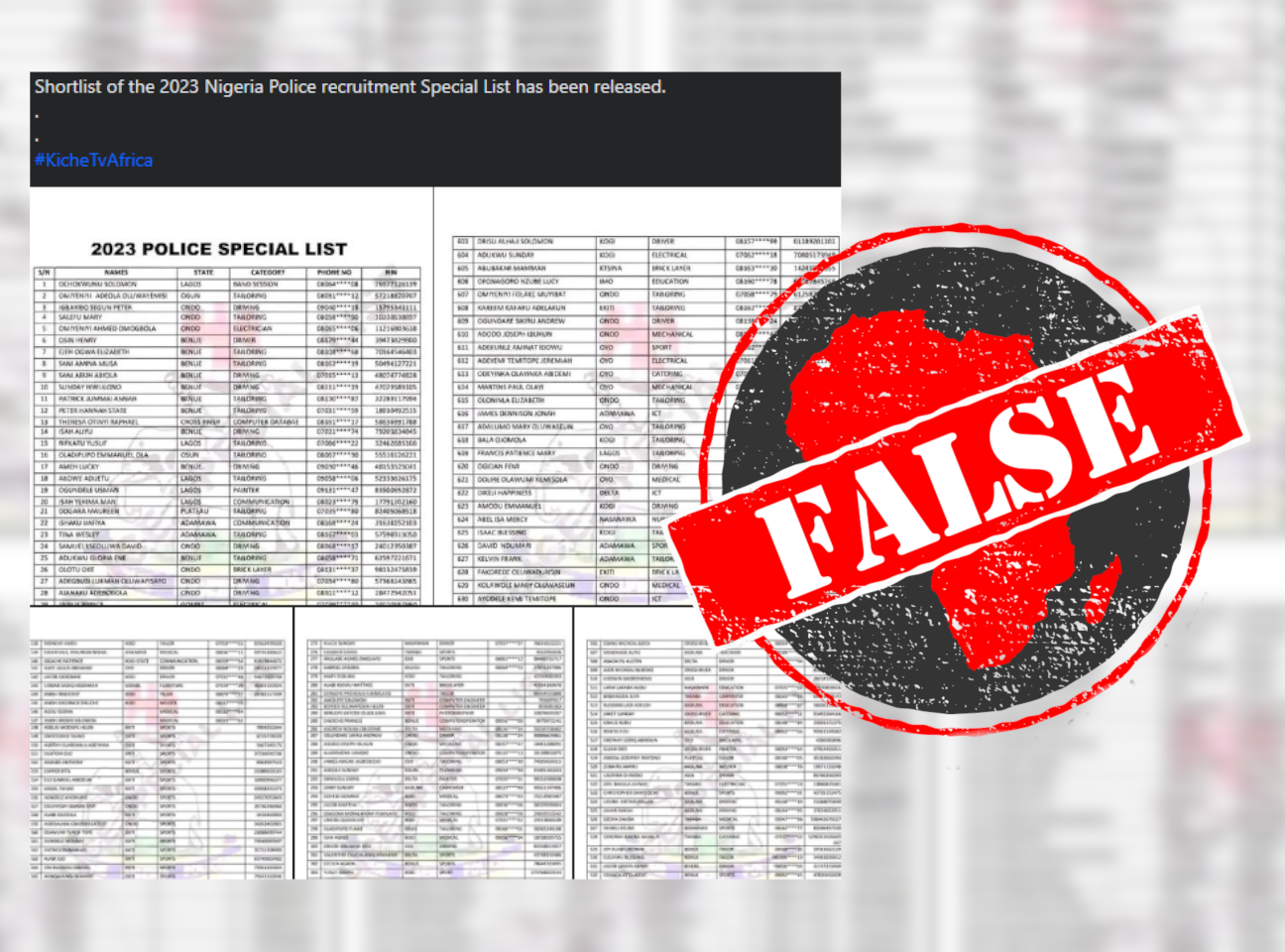IN SHORT: A “special recruitment list” purportedly published by the Nigeria Police Service Commission of successful recruits is fake. The commission has asked the public to disregard it.
A message circulating on Facebook in December 2023 claims that Nigeria’s Police Service Commission (PSC) has published a “2023 recruitment special list”.
As an oversight body, the PSC manages the interaction between the police and the public.
The message reads: “Shortlist of the 2023 Nigeria Police recruitment Special List has been released.” It contains hundreds of names, along with their state and national identity numbers.
A screenshot of the “special list” also appeared on Facebook here, here, here, here, here and here. Other users only posted that the “2023 police special recruitment list is out”.
The inclusion of identity numbers could be a cause of panic as these are confidential.
But is this a legitimate list? We checked.

‘Fictitious publication’
Various fraudulent posts on Facebook have previously targeted the Nigerian police.
On 21 November 2023, we fact-checked a post claiming that the police had published a set of travel safety tips. This was false.
On 13 December, the commission disowned the “special” list in a statement, describing it as “fictitious”.
“The publication for all intents and purposes is obviously planted to confuse and further defraud Nigerian youths who must have genuinely applied for consideration for recruitment into the Constable cadre of the Nigeria Police Force,” it said.
It added that it would “soon announce a detailed programme for the concluding part of the recruitment exercise which will include dates for physical and document screening of candidates; [a] computer-based test to be conducted by a reputable government examination body and medical tests”.
Republish our content for free
For publishers: what to do if your post is rated false
A fact-checker has rated your Facebook or Instagram post as “false”, “altered”, “partly false” or “missing context”. This could have serious consequences. What do you do?
Click on our guide for the steps you should follow.
Publishers guideAfrica Check teams up with Facebook
Africa Check is a partner in Meta's third-party fact-checking programme to help stop the spread of false information on social media.
The content we rate as “false” will be downgraded on Facebook and Instagram. This means fewer people will see it.
You can also help identify false information on Facebook. This guide explains how.


Add new comment